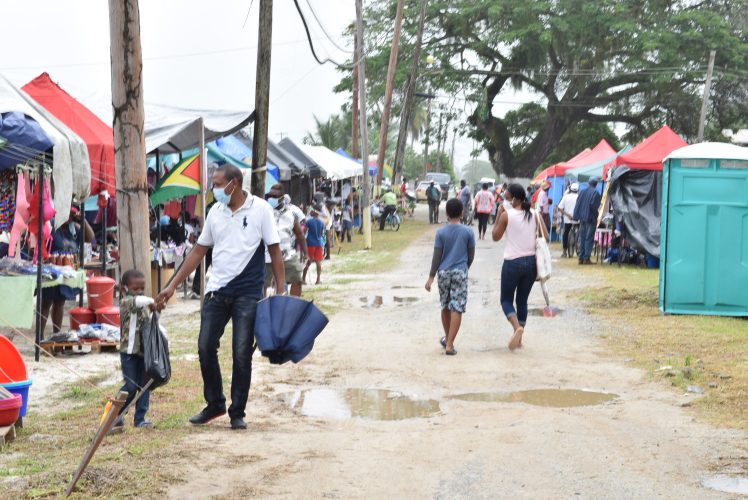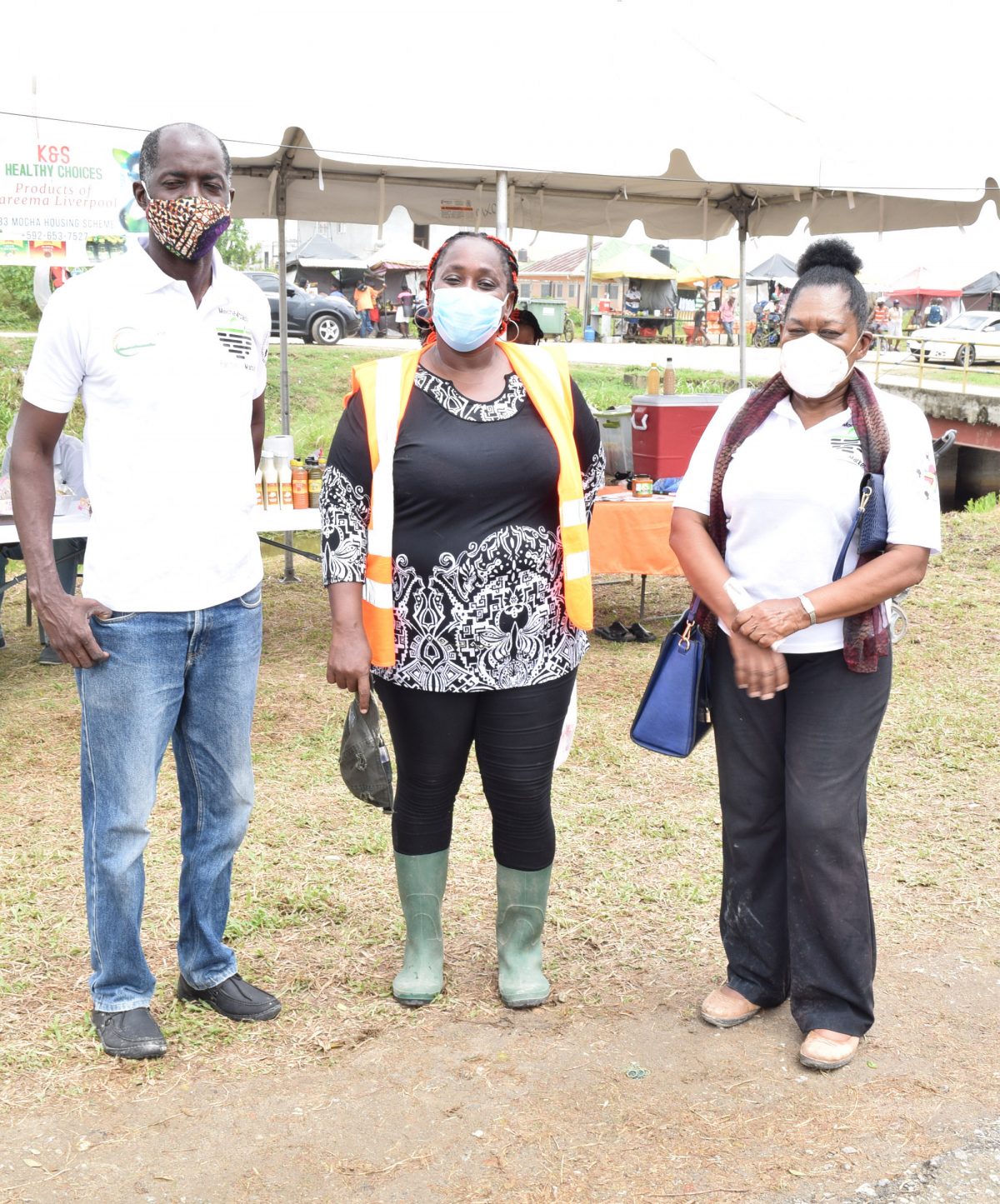The scale of the entrepreneurial pursuits of the farmers and agro-processors who comprise members of the Mocha Arcadia Multipurpose Cooperative Society (MAMPA), makes a persuasive case for the establishment of a multi-purpose market facility to support the food cultivation and agro-processing pursuits of the community, Head of the School of Entrepreneurship and Business Innovation, University of Guyana, Professor Pat Francis has told the Stabroek Business.
In a comment made on Sunday during the Cooperative’s Producers’ Market Day in the East Bank community, Professor Francis said that the exploits of the farmers and agro-processors have made deserving case for a multi-purpose trading facility in the community as well as a processing plant to support the consolidation of their pursuits.

Professor Francis’ comments were echoed by MAMPA Chairman Raeburn Jones who said that a strategically- placed market facility would remove what is often, in the circumstances, the inconvenience of home deliveries or having buyers visit farmers’ homes to make purchases.
Trained in the disciplines of Animal Science, and Food Science & Technology, Professor Francis told the Stabroek Business that the scale of last Sunday’s Producers’ Market points to the fact that the farmers have scaled up their production and that they had moved on to value-added products. “For too long the production process has been confined to salted beef and pickled pork. Let’s start doing vacuum-packed products, bacon and ham that can be sold in our supermarkets, the university professor who is closely linked with MAMPA, said.
According to Professor Francis, once farmers begin to ‘scale up’ production of cash crops and meat products, the need will arise for effective storage of those products. Accordingly, she recommends that government erect a suitable multi-purpose processing and storage facility to meet those needs. Currently, much of the distribution of products undertaken by producers is realised through home visits by buyers or by trips to farms, some of which are located several miles away from their homes.
A multiplicity of long-standing challenges including difficulties associated with the acquisition of land leases, frequent flooding of farmlands, and praedial larceny, have been some of the primary problems facing the community.
During an interview with the Stabroek Business the MAMPA Chairman said that the Producers’ Markets staged by the Cooperative had paved the way for significantly increased sales of ground provision, chicken, meat, cash crops, fruit, and agro-processed products. He said that once MAMPA is able to leave its current challenges behind it will be seeking to move to the next phase of its development. Jones told the Stabroek Business that MAMPA was anxious to rid itself of those challenges including flooding and the status of land leases, in preparation to moving to “the next stage” of significantly increasing its production of value-added products.
Jones disclosed that the group had established “valuable relationships” with entities including the Ministry of Agriculture, the Guyana School of Agriculture, the Inter-American Institute for Cooperation on Agriculture (IICA), and the Food and Agriculture Organization (FAO), in their search for support in their upgrading pursuits.
IICA’s Agriculture Business and Value Chain Specialist Jo-Ann David told the Stabroek Business that the Institute along with the FAO has been providing support to fourteen agro-processors in the Mocha/Arcadia community in packaging and labelling. IICA and FAO have also donated the glass and plastic jars, and shakers, and have also given support in the creation of labels.
David disclosed that the second phase of the International Organizations’ work with farmers and agro- processors, which will begin next month will involve undertaking an assessment of the particular needs of the agro-processors, which process will embrace training in longer shelf-life preservation and marketing the products in Guyana, the Caribbean, and further afield.
Meanwhile, Professor Francis told the Stabroek Business that she would wish to see the Guyana Marketing Corporation (GMC) pressed into service through the creation of a department comprising specialists charged with processing and marketing competencies who can be entrusted with providing guidance in marketing strategies.







